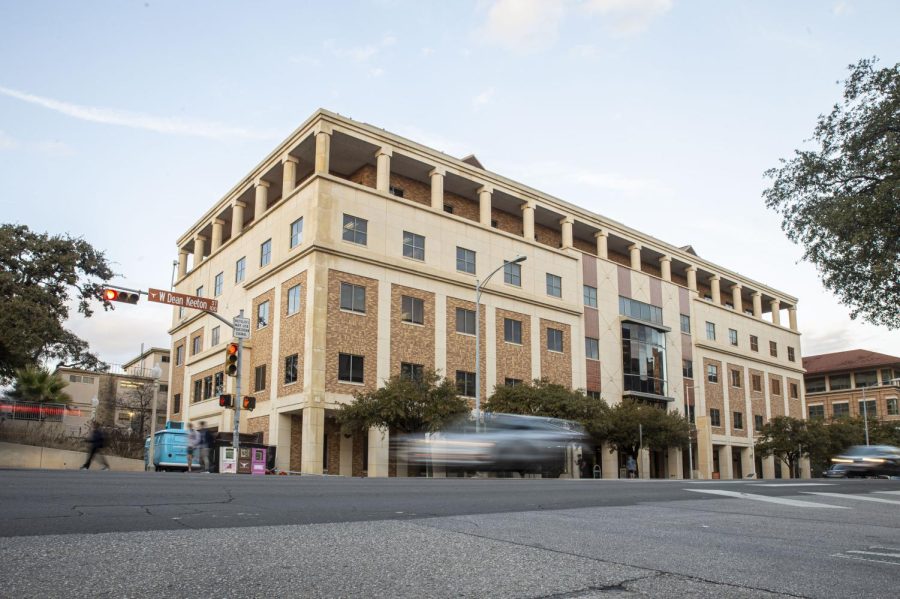Counseling and Mental Health Services provides yoga for trauma victims
February 8, 2023
Students stretch their limbs up to the ceiling, down to the floor and everywhere in between. Breathing in and out, they find peace once a week and reach a step farther in their healing process.
The Counseling and Mental Health Center offers trauma-informed yoga through Voices Against Violence (VAV), an organization catering to issues related to interpersonal violence. Meeting on Tuesdays from 3:30-5 p.m. on the fifth floor of the Student Services building, Kristen Pearson, a trauma-informed yoga instructor and clinical social worker, said the yoga classes aim to serve as a healing resource on campus.
“Yoga is one evidence-based practice to help people address some of the somatic experiences of what healing means,” Pearson said. “The focus is themes of grounding, empowerment, choice and reconnection with one’s body.”
Combining her expertise as a staff therapist and registered yoga instructor, Pearson said each trauma-informed yoga session begins with a check in, followed by a conversation about the day’s activities.
Pearson said trauma-informed yoga focuses less on physicality and flexibility and more on instilling comfort in each class’s attendees.
“The focus is on being present with your body,” Pearson said. “The intention is to facilitate. It’s creating other mindful ways of being present with oneself.”
VAV coordinator Alpha Shrestha said not only does yoga allow people to connect with themselves, but it also builds community between participants, no matter one’s experience with trauma.
“One thing (students) come back to me about is that even though they’re not talking as much (as traditional therapy), it’s the solidarity that they build in the community that comes along with doing yoga,” Shrestha said.
Looking to foster an inclusive environment, Pearson said her services welcome survivors of all shapes and sizes.
“It is not for people who look a specific way or have a specific degree of fitness,” Pearson said. “I think there’s some conceptions about yoga and what it is, and that’s not what we’re doing.”
In their efforts to best support those seeking mental health guidance, Katy Redd, an associate director of the CMHC, said the organization prides themselves in constantly assessing how to better accommodate students.
“(We ask) how we make sure we balance what our students need (and) training that our staff has with best practices,” Redd said. “We’re always adding new things, adding new groups (and) doing a different service.”
Along with trauma-informed yoga, the CMHC also provides other yoga-based mental health services, including separate sessions for law students, Iranian students and students who are Black, Indigenous or people of color.
“It’s cool to work at a place that is always thinking about innovation,” Pearson said. “(We take) action to provide the best services we can even when it means new processes need to be created or different ways of communicating.”
One extended arm at a time, the instructors look to maintain the center’s goals of supporting students’ mental health through programs that best connect with them.
“(There’s) relationship building within your body and the trauma vessel,” Shrestha said. “There is a feeling of normalcy and of not loneliness in practices that the survivors want to follow.”











